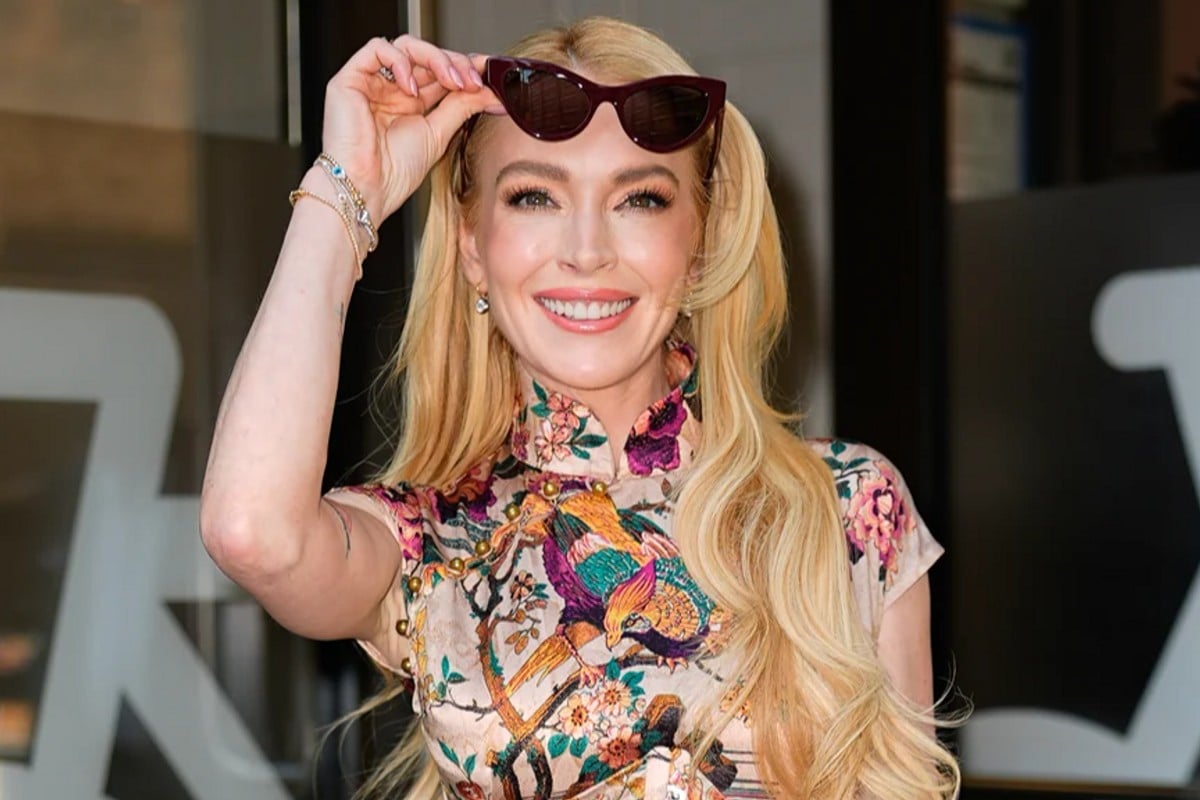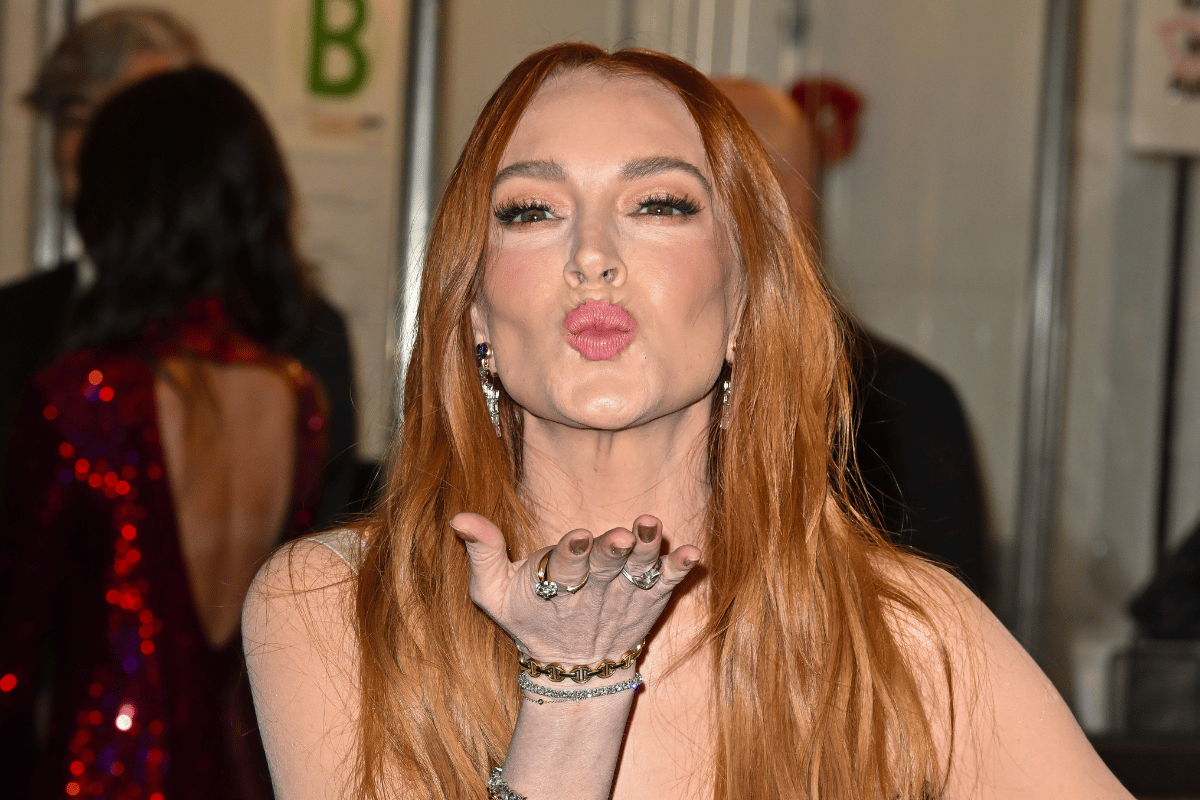
If you want to support independent women's media, become a Mamamia subscriber. Get an all-access pass to everything we make, including exclusive podcasts, articles, videos and our exercise app, MOVE.
Glassy eyes smeared with mascara, fading fake tan in blotches around her chin and unnaturally blonde hair extensions having seen better days, Lindsay Lohan stares warily down the barrel of the camera, her mouth half-open as if she's in the middle of asking a question.
It's her first mug shot. She's three weeks past her 21st birthday. After reaching what seemed like the pinnacle of a Hollywood career that had started when she was just 10 years old, Lindsay Lohan was fresh off the high of Mean Girls' cult-like success, and the wheels had fallen off.
She'd been arrested, charged with DUI, and checked herself into rehab soon after.
At the time, the public reaction could only be described as one of gleeful schadenfreude. No one questioned why a young woman might be so deep in the throes of addiction, just three weeks after legally being able to drink.
The adults surrounding her (her parents were in the midst of a messy, public divorce) seemingly had done little to intervene in the years prior.
Watch: Lindsay Lohan's Reality Show Is Here. Post continues below.































































































